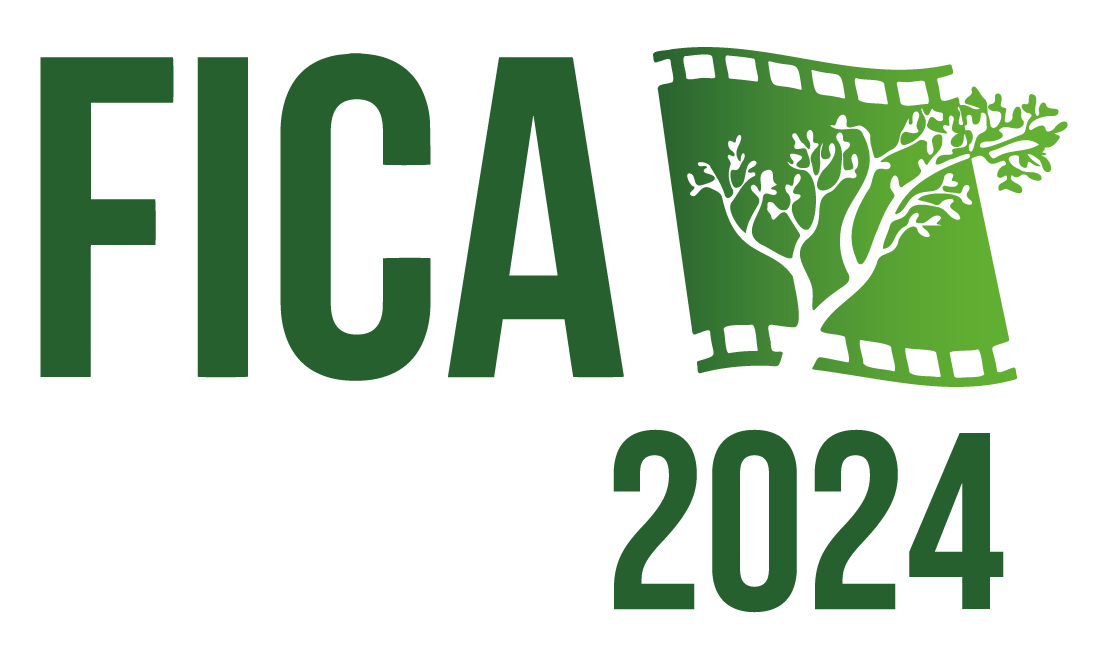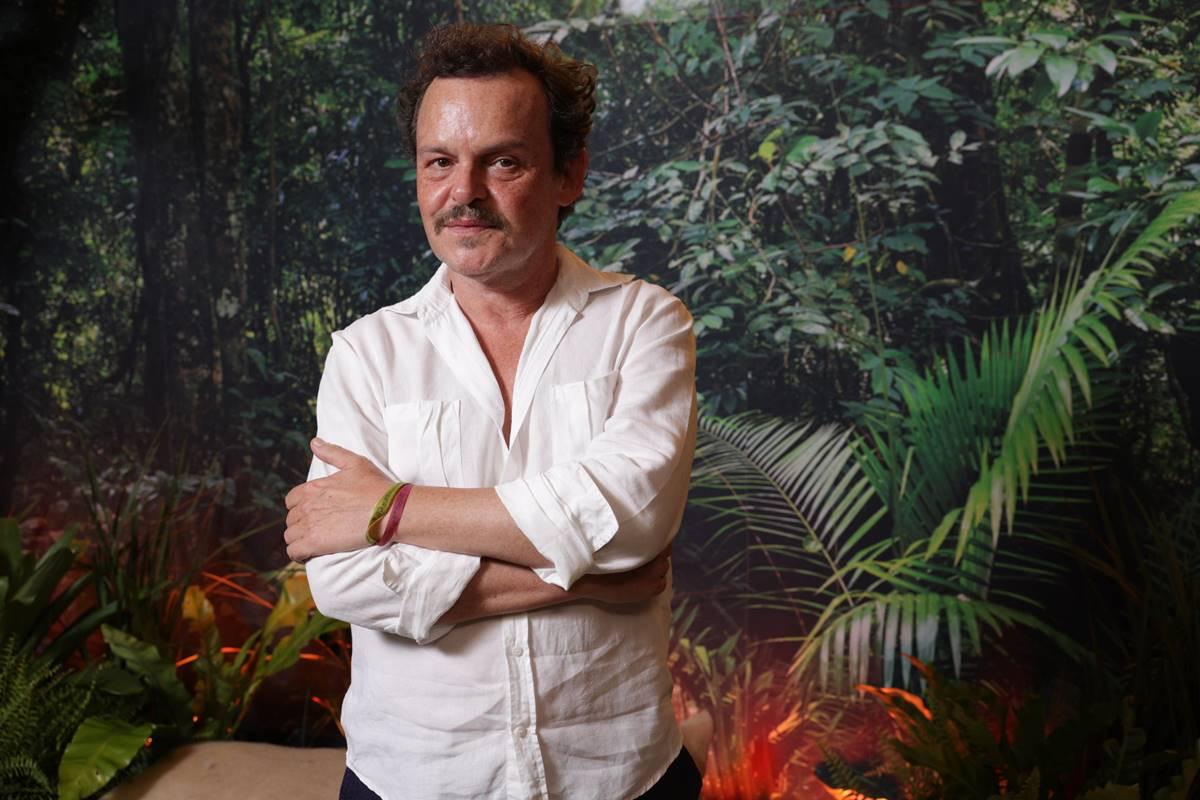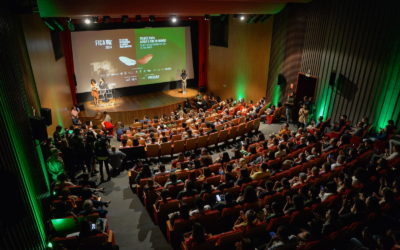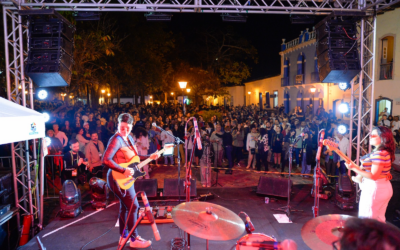Nachtergaele will be accompanied by Eduardo Escorel, director of the film “Antonio Candido, Final Notes”. Open to the public, the meeting takes place on Saturday (15/06), at 10:30 am, at Cine Teatro São Joaquim
Brazilian actor, director and author Matheus Nachtergaele will be present at the 25th edition of the International Environmental Film and Video Festival (Fica), which takes place in the City of Goiás between the 11th and 16th of June. The interpreter will participate in the cinema conference “Antonio Candido”: Brasil Narrado, Narrações do Brasil”, on Saturday, (15/06), at 10:30 am, at Cine Teatro São Joaquim.
Nachtergaele will also be accompanied by Eduardo Escorel, filmmaker and director of the film “Antonio Candido, Final Notes”, which is part of the festival's special film exhibition, and for which the actor provided the narration.
The film conference is one of the activities that make up the festival’s program. Open to the public and without the need for pre-registration, directors and actors talk about the production of the film, the creative processes of their works and cinema in general. Participants can interact by asking questions and making comments.
In the previous edition, the film “A Flor do Buriti”, a feature by Portuguese João Salaviza and Brazilian Renée Nader Messora, was awarded at the renowned Cannes Film Festival and released at Fica. Also, last year, the conference featured the participation of Aílton Krenak and the screening of the film “Goodbye, Captain”, by director Vincent Carelli.
Matheus Nachtergaele
Matheus Nachtergaele is a Brazilian actor, director and author. Considered one of the most versatile actors of his generation, he is the winner of several awards and nominations at film festivals, such as the APCA Trophy, Shell Prize, Guarani Prize, Gramado Festival, Los Angeles Brazilian Film Festival, as well as two nominations at the Cannes Film Festival. .
In cinema, he began his artistic career in the late 1990s, standing out in O Que É Isso, Companheiro? (1997), Kenoma (1998) and Central do Brasil (1998), until playing the protagonist João Grilo in the miniseries O Auto da Compadecida (1999), which was later turned into a film and re-released in 2000, winning awards and praise from the criticism and the author of the work Ariano Suassuna himself.
He later returned to prominence in City of God (2002), Amarelo Manga (2002), A Concepción (2005), Carpet Vermelho (2006), O Bem Amado (2010), Febre do Rato (2011), Serra Pelada (2013 ), Thirty (2014) and Goats of the Plague (2021).
In 2008, he debuted as a filmmaker, directing his first feature film, A Festa da Menina Morta, which won two APCA Awards.
Eduardo Escorel
Eduardo Escorel directed, among others, Antonio Candido, Final notes, 1968 – A year in the life (2023), SARS-CoV-2 / The Time of the Pandemic (2021, co-directed by Lauro Escorel), 1937 – 45 Imagens do Estado Novo (2015) and Paulo Moura – Brazilian soul (2013).
He made his first documentary – Bethânia Bem de Perto – as photographer, co-director and editor, in 1966, followed by Visão de Juazeiro, in 1970. He directed Lição de Amor, his first fiction feature film, in 1975, followed by Ato de Violência , in 1979 and O Cavalinho Azul, in 1984.
He edited, among others, Terra em Transe (1967), Macunaíma (1969), Cabra Marcado para Morrer (1984), Santiago (with Letícia Serpa, 2006) and No Intenso Agora (with Laís Lifschitz, 2016). He published Water Divinations, published by Cosac Naify, in 2005.
He has written a column on the Piauí magazine website since 2009.
Synopsis by Antonio Candido, Final Notes
87′, dcp, b&w/color, 2024
Director: Eduardo Escorel
When he died, at the age of 98, Antonio Candido left behind 74 unpublished notebooks. Based on the last two, the film focuses on texts written between 2015 and 2017. Signs of physical fragility, newspaper reports, literary, musical and cinematographic preferences, evocations of ancestors, mentions of childhood in the southwest of Minas and memories of Gilda de Mello and Souza are recurring themes.
Multicultural event
Fica 2024 has a vast free program, with competitive exhibitions, debates with big names in national and international cinema, environmental activities and cultural attractions.
The festival is supported by the Goiás Social program; of the State Secretariats for Resumption; of Science, Technology and Innovation (Secti); and Environment and Sustainable Development (Semad); Saneago; State University of Goiás (UEG), Federal Institute of Goiás (IFG); Social Service of Commerce (Sesc) and City Hall of the city of Goiás. This year the event also has as supporters the United Nations Educational, Scientific and Cultural Organization (Unesco), the National Museum of Indigenous Peoples/Funai, Fundação Oswaldo Cruz (Fiocruz), Grupo Kelldrin and Saga BYD.





